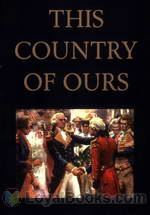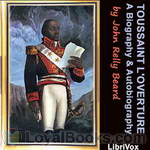|
Books Should Be Free Loyal Books Free Public Domain Audiobooks & eBook Downloads |
|
|
Books Should Be Free Loyal Books Free Public Domain Audiobooks & eBook Downloads |
|
Books on Politics |
|---|
|
Book type:
Sort by:
View by:
|
By: H. W. (Henry William) Lee (1865-1932) | |
|---|---|
 Bolshevism: A Curse & Danger to the Workers
Bolshevism: A Curse & Danger to the Workers
| |
By: Harold J. Laski (1893-1950) | |
|---|---|
 Karl Marx: An Essay
Karl Marx: An Essay
Born in Manchester in 1893, Harold Laski was a leading figure in the left-wing of British socialism in the first half of the 20th century. An executive member of the Fabian Society and member of the Socialist League faction of the Labour Party, he was party chairman in 1945-6. As a professor at the London School of Economics he influenced a number of prominent politicians of the post-war years, including leaders of the independence movements of Asia and Africa, and Ralph Milliband, father of the current Labour Party leader, Ed Milliband... | |
By: Harold Joseph Laski (1893-1950) | |
|---|---|
 Political Thought in England from Locke to Bentham
Political Thought in England from Locke to Bentham
| |
By: Harry Furniss (1854-1925) | |
|---|---|
 M. P.'s in Session From Mr. Punch's Parliamentary Portrait Gallery
M. P.'s in Session From Mr. Punch's Parliamentary Portrait Gallery
| |
By: Harry S. Truman (1884-1972) | |
|---|---|
 State of the Union Address
State of the Union Address
| |
By: Harry Thurston Peck (1856-1914) | |
|---|---|
 Twenty Years of the Republic 1885-1905
Twenty Years of the Republic 1885-1905
Excerpt: At the time when Mr. Cleveland was inaugurated there had been no Democratic President for a full quarter of a century. A whole generation had been born and had grown to manhood and to womanhood without ever having lived under any but Republican rule. This long continuance in power of a single party had led many citizens to identify the interest of that party with the interests of the nation. The democrats had been so invariably beaten at the polls as to make Republicans believe that the defeated party had no decent reason for existence, and that is was composed only of wilful obstructionists or of persons destitute of patriotism... | |
By: Harvey Jerrold O'Higgins (1876-1929) | |
|---|---|
 Under the Prophet in Utah; the National Menace of a Political Priestcraft
Under the Prophet in Utah; the National Menace of a Political Priestcraft
| |
By: Henrietta Elizabeth Marshall (1867-1941) | |
|---|---|
 This Country of Ours
This Country of Ours
History made interesting for young readers—This Country of Ours by Henrietta Elizabeth Marshall provides a simple and easy to comprehend way of looking at the history of the United States. Arranged chronologically in seven long chapters, it presents events in a story form, making them memorable and very different from other formats. One of the challenges that writers of history face is about fleshing out the characters and making the bland repetition of dates and dynasties seem relevant to modern day readers... | |
By: Henry Adams (1838-1918) | |
|---|---|
 Democracy - An American Novel
Democracy - An American Novel
Not until after his death in 1918 was it revealed that Henry Adams was the anonymous author of Democracy, which had been published to great acclaim in 1880. Though the book avoids dates and the characters are fictitious, the setting is no doubt that of Washington in the 1870s, the age of Presidents Grant and Hayes. The young widow, Madeleine Lee, wealthy and independent, is the protagonist, who leaves her New York for Washington to turn her intelligence to politics and to see what makes her country tick... | |
By: Henry C. Northam | |
|---|---|
 Civil Government for Common Schools
Civil Government for Common Schools
| |
By: Henry Clay (1777-1852) | |
|---|---|
 Henry Clay's Remarks in House and Senate
Henry Clay's Remarks in House and Senate
| |
By: Henry de Rosenbach Walker (1867-) | |
|---|---|
 Australasian Democracy
Australasian Democracy
| |
By: Henry Jones Ford (1851-1925) | |
|---|---|
 The Cleveland Era; a chronicle of the new order in politics
The Cleveland Era; a chronicle of the new order in politics
| |
By: Henry Morgenthau (1856-1946) | |
|---|---|
 Ambassador Morgenthau's Story
Ambassador Morgenthau's Story
Ambassador Morgenthau’s memoirs of his years in the service of the United States in Constantinople, (today Istanbul), are an important primary historical resource for the study of the dissolution of the Ottoman Empire and the Armenian Genocide. During this genocide, approximately 1,500,000 Armenians living in Anatolia were murdered in an attempt to rid Turkey of its non-Turkish populations. Mr. Morgenthau left Turkey a frustrated man, having done all that he was able through diplomatic circles to halt the murders, to no avail... | |
By: Henry Ward Beecher (1813-1887) | |
|---|---|
 Conflict of Northern and Southern Theories of Man and Society Great Speech, Delivered in New York City
Conflict of Northern and Southern Theories of Man and Society Great Speech, Delivered in New York City
| |
By: Herbert Hoover (1874-1964) | |
|---|---|
 State of the Union Address
State of the Union Address
| |
By: Hilaire Belloc (1870-1953) | |
|---|---|
 The Free Press
The Free Press
I propose to discuss in what follows the evil of the great modern Capitalist Press, its function in vitiating and misinforming opinion and in putting power into ignoble hands; its correction by the formation of small independent organs, and the probably increasing effect of these last. (Introduction by Hilaire Belloc) | |
By: Hippolyte Dreyfus-Barney (1873-1928) | |
|---|---|
 The Universal Religion: Bahaism - Its Rise and Social Import
The Universal Religion: Bahaism - Its Rise and Social Import
“Bahaism is not a new religion,” writes Hippolyte Dreyfus-Barney, “It is religion renewed… it does not pretend to represent the whole Truth; on the contrary, it recognises Truth in fundamental principles which are the basis of all former dispensations, and which for that very reason form the standpoint of concord too long lost sight of. And it requires people to renounce ancient superstitions, to abandon the dead letter in order to be penetrated by the living and vivifying spirit, then by... | |
By: Hippolyte Taine (1828-1893) | |
|---|---|
 The Ancient Regime
The Ancient Regime
| |
 The Modern Regime, Volume 1
The Modern Regime, Volume 1
| |
 The Modern Regime, Volume 2
The Modern Regime, Volume 2
| |
By: Horace Curzon Plunkett (1854-1932) | |
|---|---|
 Ireland In The New Century
Ireland In The New Century
| |
By: Howard B. (Howard Benjamin) Grose (1851-1939) | |
|---|---|
 Aliens or Americans?
Aliens or Americans?
| |
By: Immanuel Kant (1724-1804) | |
|---|---|
 Perpetual Peace, A Philosophic Essay (Trueblood Translation)
Perpetual Peace, A Philosophic Essay (Trueblood Translation)
This essay, written in 1795, puts forth a plan for a lasting peace between nations and peoples. Kant puts forth necessary means to any peace, and argues that nations can be brought into federation with one another without loss of sovereignty. In one translation, telling of the historical impact of this essay, this federation is called a “league of nations.” The supplements and appendices are of considerable interest on their own. The supplements contain an argument regarding the use which nature makes of war, and the way in which nature, in the end, impels us towards peace... | |
By: Intercollegiate Peace Association | |
|---|---|
 Prize Orations of the Intercollegiate Peace Association
Prize Orations of the Intercollegiate Peace Association
| |
By: Iraq Study Group (U.S.) | |
|---|---|
 The Iraq Study Group Report
The Iraq Study Group Report
| |
By: Ivan S. Turgenev (1818-1883) | |
|---|---|
 Virgin Soil
Virgin Soil
| |
By: J. Allen (James Allen) Smith (1860-1926) | |
|---|---|
 The Spirit of American Government A Study Of The Constitution: Its Origin, Influence And Relation To Democracy
The Spirit of American Government A Study Of The Constitution: Its Origin, Influence And Relation To Democracy
| |
By: J. Ellis Barker (1870-1948) | |
|---|---|
 British Socialism An Examination of Its Doctrines, Policy, Aims and Practical Proposals
British Socialism An Examination of Its Doctrines, Policy, Aims and Practical Proposals
| |
By: J. Hampton (Joseph Hampton) Moore (1864-1950) | |
|---|---|
 How Members of Congress Are Bribed
How Members of Congress Are Bribed
| |
By: J. Q. (James Quay) Howard (1836-1912) | |
|---|---|
 The Life, Public Services and Select Speeches of Rutherford B. Hayes
The Life, Public Services and Select Speeches of Rutherford B. Hayes
| |
By: J. T. (James Thompson) McCleary (1853-1924) | |
|---|---|
 Studies in Civics
Studies in Civics
| |
By: J. W. (James William) Sullivan (1848-) | |
|---|---|
 Direct Legislation by the Citizenship through the Initiative and Referendum
Direct Legislation by the Citizenship through the Initiative and Referendum
| |
By: J. W. (John Wesley) Dafoe (1866-1944) | |
|---|---|
 Laurier: A Study in Canadian Politics
Laurier: A Study in Canadian Politics
| |
By: Jack London (1876-1916) | |
|---|---|
 The Iron Heel
The Iron Heel
A dystopian novel about the terrible oppressions of an American oligarchy at the beginning of the Twentieth Century, and the struggles of a socialist revolutionary movement. (Introduction by Matt Soar) | |
By: Jacob A. Riis (1849-1914) | |
|---|---|
 How the Other Half Lives: Studies Among the Tenements of New York
How the Other Half Lives: Studies Among the Tenements of New York
How the Other Half Lives: Studies Among the Tenements of New York (1890) was a pioneering work of photojournalism by Jacob Riis, documenting the squalid living conditions in New York City slums in the 1880s. It served as a basis for future muckraking journalism by exposing the slums to New York City’s upper and middle class. The title of the book is a reference to a phrase of François Rabelais, who wrote in Pantagruel: "one half of the world does not know how the other half lives". | |
 Neighbors – Life Stories of the Other Half
Neighbors – Life Stories of the Other Half
These stories have come to me from many sources—some from my own experience, others from settlement workers, still others from the records of organized charity, that are never dry, as some think, but alive with vital human interest and with the faithful striving to help the brother so that it counts. They have this in common, that they are true. For good reasons, names and places are changed, but they all happened as told here. I could not have invented them had I tried; I should not have tried if I could... | |
By: James Bryce Bryce (1838-1922) | |
|---|---|
 Impressions of South Africa
Impressions of South Africa
| |
By: James Buchanan (1791-1868) | |
|---|---|
 State of the Union Address
State of the Union Address
| |
 State of the Union Addresses by United States Presidents (1857 - 1860)
State of the Union Addresses by United States Presidents (1857 - 1860)
The State of the Union address is a speech presented by the President of the United States to a joint session of the United States Congress, typically delivered annually. The address not only reports on the condition of the nation but also allows the President to outline his legislative agenda and national priorities. This album contains recordings of addresses from James Buchanan. - Summary by Wikipedia and Linette Geisel | |
By: James Hannay (1842-1910) | |
|---|---|
 Wilmot and Tilley
Wilmot and Tilley
| |
By: James Harrington (1611-1677) | |
|---|---|
 The Commonwealth of Oceana
The Commonwealth of Oceana
| |
By: James K. (James Knox) Polk (1795-1849) | |
|---|---|
 State of the Union Address
State of the Union Address
| |
By: James K. Polk (1795-1849) | |
|---|---|
 State of the Union Addresses by United States Presidents (1845 - 1848)
State of the Union Addresses by United States Presidents (1845 - 1848)
The State of the Union address is a speech presented by the President of the United States to a joint session of the United States Congress, typically delivered annually. The address not only reports on the condition of the nation but also allows the President to outline his legislative agenda and national priorities. This album contains recordings of addresses from James Polk. | |
By: James Mackintosh (1765-1832) | |
|---|---|
 A Discourse on the Study of the Law of Nature and Nations
A Discourse on the Study of the Law of Nature and Nations
| |
By: James Monroe (1758-1831) | |
|---|---|
 State of the Union Address
State of the Union Address
| |
By: James Russell Lowell (1819-1891) | |
|---|---|
 The Writings of James Russell Lowell in Prose and Poetry, Volume V Political Essays
The Writings of James Russell Lowell in Prose and Poetry, Volume V Political Essays
| |
By: James Thomson (1834-1882) | |
|---|---|
 Satires and Profanities
Satires and Profanities
"Believing as I do that James Thomson is, since Shelley, the most brilliant genius who has wielded a pen in the service of Freethought, I take a natural pride and pleasure in rescuing the following articles from burial in the great mausoleum of the periodical press. There will doubtless be a diversity of opinion as to their value. One critic, for instance, has called “The Story of a Famous Old Jewish Firm” a witless squib; but, on the other hand, the late Professor Clifford considered it a piece of exquisite mordant satire worthy of Swift... | |
By: Jane Addams (1860-1935) | |
|---|---|
 Twenty Years at Hull-House
Twenty Years at Hull-House
Jane Addams was the first American woman to be awarded the Nobel Peace Prize. In a long, complex career, she was a pioneer settlement worker and founder of Hull-House in Chicago, public philosopher (the first American woman in that role), author, and leader in woman suffrage and world peace. She was the most prominent woman of the Progressive Era and helped turn the nation to issues of concern to mothers, such as the needs of children, public health and world peace. She emphasized that women have a special responsibility to clean up their communities and make them better places to live, arguing they needed the vote to be effective... | |
 The Spirit of Youth and the City Streets
The Spirit of Youth and the City Streets
Much of the material in the following pages has appeared in current publications. It is here presented in book form in the hope that it may prove of value to those groups of people who in many cities are making a gallant effort to minimize the dangers which surround young people and to provide them with opportunities for recreation. (Introduction by Jane Addams) Jane Addams (1860 – 1935) was the first American woman to be awarded the Nobel Peace Prize. In a long, complex career, she was a pioneer settlement worker and founder of Hull House in Chicago, a public philosopher, a sociologist, an author and a spokesperson for women's suffrage and world peace. | |
By: Jean-Jacques Rousseau (1712-1778) | |
|---|---|
 A Discourse Upon the Origin and the Foundation of the Inequality Among Mankind
A Discourse Upon the Origin and the Foundation of the Inequality Among Mankind
This work presents Rousseau’s belief in the profoundly transformational effects of the development of civilization on human nature, which Rousseau claims other political philosophers had failed to grasp. Specifically, before the onset of civilization, according to Rousseau, natural man lived a contented, solitary life, naturally good and happy. It is only with the onset of civilization, Rousseau claims, that humans become social beings, and, concomitant with their civilization, natural man becomes corrupted with the social vices of pride, vanity, greed and servility. | |
 The Social Contract
The Social Contract
The Social Contract outlines Rousseau’s views on political justice, explaining how a just and legitimate state is to be founded, organized and administered. Rousseau sets forth, in his characteristically brazen and iconoclastic manner, the case for direct democracy, while simultaneously casting every other form of government as illegitimate and tantamount to slavery. Often hailed as a revolutionary document which sparked the French Revolution, The Social Contract serves both to inculcate dissatisfaction with actually-existing governments and to allow its readers to envision and desire a radically different form of political and social organization. (Summary by Eric Jonas) | |
By: Jefferson Davis (1808-1889) | |
|---|---|
 Speeches of the Hon. Jefferson Davis, of Mississippi
Speeches of the Hon. Jefferson Davis, of Mississippi
| |
By: Jeremy Bentham (1748-1832) | |
|---|---|
 Offences Against One's Self: Paederasty
Offences Against One's Self: Paederasty
Jeremy Bentham (1748-1832) was an English jurist, philosopher, and legal and social reformer. He was a political radical and a leading theorist in Anglo-American philosophy of law. He is best known as an early advocate of utilitarianism and animal rights who influenced the development of liberalism. The essay Offences Against One’s Self (c. 1785), argued for the liberalisation of laws prohibiting homosexuality. The essay remained unpublished during Bentham’s lifetime for fear of offending public morality... | |
 An Introduction to the Principles of Morals and Legislation
An Introduction to the Principles of Morals and Legislation
Jeremy Bentham's Introduction to the Principles of Morals and Legislation, a classic text in modern philosophy and jurisprudence, first published in 1789, focuses on the principle of utility and how this view of morality ties into legislative practices. Bentham's ambition in life was to create a complete Utilitarian code of law. The philosophy of utilitarianism argues that the right act or policy is that which would cause "the greatest good for the greatest number of people", also known as "the greatest happiness principle", or the principle of utility... | |
By: Jimmy Carter (1924-) | |
|---|---|
 State of the Union Address
State of the Union Address
| |
By: Johanna Brandt (1876-1964) | |
|---|---|
 The Petticoat Commando
The Petticoat Commando
In introducing the English version of this book I venture to bespeak a welcome for it, not only for the light which it throws on some little-known incidents of the South African war, but also because of the keen personal interest of the events recorded. It is more than a history. It is a dramatic picture of the hopes and fears, the devotion and bitterness with which some patriotic women in Pretoria watched and, as far as they could, took part in the war which was slowly drawing to its conclusion on the veld outside... | |
By: John Adams (1735-1826) | |
|---|---|
 State of the Union Address
State of the Union Address
| |
By: John Addington Symonds (1840-1893) | |
|---|---|
 A Problem in Modern Ethics
A Problem in Modern Ethics
“Society lies under the spell of ancient terrorism and coagulated errors. Science is either wilfully hypocritical or radically misinformed.” John Addington Symonds struck many an heroic note in this courageous (albeit anonymously circulated) essay. He is a worthy Virgil guiding the reader through the Inferno of suffering which emerging medico-legal definitions of the sexually deviant were prepared to inflict on his century and on the one which followed. Symonds pleads for sane human values in... | |
By: John Arbuthnot (1667-1735) | |
|---|---|
 History of John Bull
History of John Bull
| |
By: John C. (John Caldwell) Calhoun (1782-1850) | |
|---|---|
 Remarks of Mr. Calhoun of South Carolina
Remarks of Mr. Calhoun of South Carolina
| |
By: John Charles Dent (1841-1888) | |
|---|---|
 The Story of the Upper Canadian Rebellion, Volume 1
The Story of the Upper Canadian Rebellion, Volume 1
| |
By: John Denvir (1843-1916) | |
|---|---|
 The Life Story of an Old Rebel
The Life Story of an Old Rebel
| |
By: John Eliot (1604-1690) | |
|---|---|
 Christian Commonwealth
Christian Commonwealth
John Eliot, a North American missionary, advocates for post-civil-war England to adopt a representative democracy, using the Mosaic Law as a model. | |
By: John Evelyn (1620-1706) | |
|---|---|
 An Apologie for the Royal Party (1659); and A Panegyric to Charles the Second (1661)
An Apologie for the Royal Party (1659); and A Panegyric to Charles the Second (1661)
| |
By: John F. (John Fitzgerald) Kennedy (1917-1963) | |
|---|---|
 State of the Union Address
State of the Union Address
| |
By: John Holladay Latané (1869-1932) | |
|---|---|
 From Isolation to Leadership, Revised A Review of American Foreign Policy
From Isolation to Leadership, Revised A Review of American Foreign Policy
| |
By: John L. (John Lewis) Ferguson (1926-2006) | |
|---|---|
 Arkansas Governors and United States Senators
Arkansas Governors and United States Senators
| |
By: John Lewis (1858-1935) | |
|---|---|
 George Brown
George Brown
| |
By: John Locke (1632-1704) | |
|---|---|
 Two Treatises of Civil Government
Two Treatises of Civil Government
The Two Treatises of Civil Government is a work of political philosophy published anonymously in 1689 by John Locke. The First Treatise is an extended attack on Sir Robert Filmer’s Patriarcha, which argued for a divinely-ordained, hereditary, absolute monarchy. The more influential Second Treatise outlines a theory of civil society based on natural rights and contract theory. Locke begins by describing the “state of nature,” and goes on to explain the hypothetical rise of property and civilization, asserting that the only legitimate governments are those which have the consent of the people... | |
 Second Treatise of Government
Second Treatise of Government
| |
By: John Lothrop Motley (1814-1877) | |
|---|---|
 Causes Of The American Civil War
Causes Of The American Civil War
John Lothrop Motley was an American author and popular diplomat, who helped to prevent European intervention on the side of the Confederates in the American Civil War. In 1861, just after the outbreak of the American Civil War, Motley wrote two letters to The Times defending the Federal position, and these letters, afterwards reprinted as [this] pamphlet entitled Causes of the Civil War in America, made a favourable impression on President Lincoln. Partly owing to this essay, Motley was appointed... | |
By: John Maynard Keynes (1883-1946) | |
|---|---|
 Economic Consequences of the Peace
Economic Consequences of the Peace
The Economic Consequences of the Peace (1919) was a best seller throughout the world, published by John Maynard Keynes. Keynes attended the Versailles Conference as a delegate of the British Treasury and argued for a much more generous peace with Germany. The book was critical in establishing a general worldwide opinion that the Versailles Treaty was a brutal and unfair peace towards Germany. It helped to consolidate American public opinion against the treaty and involvement in the League of Nations... | |
By: John Milton (1608-1674) | |
|---|---|
 Areopagitica
Areopagitica
A prose tract or polemic by John Milton, published November 23, 1644, at the height of the English Civil War… Milton, though a supporter of the Parliament, argued forcefully against the Licensing Order of 1643, noting that such censorship had never been a part of classical Greek and Roman society. The tract is full of biblical and classical references which Milton uses to strengthen his argument. The issue was personal for Milton as he had suffered censorship himself in his efforts to publish... | |
By: John Morley (1838-1923) | |
|---|---|
 The Life of William Ewart Gladstone, Vol. 1 (of 3) 1809-1859
The Life of William Ewart Gladstone, Vol. 1 (of 3) 1809-1859
| |
By: John Quincy Adams (1767-1848) | |
|---|---|
 State of the Union Addresses of John Quincy Adams
State of the Union Addresses of John Quincy Adams
| |
By: John R. Lynch (1847-1939) | |
|---|---|
 The Facts of Reconstruction
The Facts of Reconstruction
After the American Civil War, John R. Lynch, who had been a slave in Mississippi, began his political career in 1869 by first becoming Justice of the Peace, and then Mississippi State Representative. He was only 26 when he was elected to the US Congress in 1873. There, he continued to be an activist, introducing many bills and arguing on their behalf. Perhaps his greatest effort was in the long debate supporting the Civil Rights Act of 1875 to ban discrimination in public accommodations.In 1884 Lynch was the first African American nominated after a moving speech by Theodore Roosevelt to the position of Temporary Chairman of the Republican National Convention in Chicago, Illinois... | |
By: John Relly Beard (1800-1876) | |
|---|---|
 Toussaint L’Ouverture: A Biography and Autobiography
Toussaint L’Ouverture: A Biography and Autobiography
François-Dominique Toussaint L’Ouverture (1743-1803) rose to fame in 1791 during the Haitian struggle for independence. In this revolt, he led thousands of slaves on the island of Hispañola to fight against the colonial European powers of France, Spain and England. The former slaves ultimately established the independent state of Haiti and expelled the Europeans. L’Ouverture eventually became the governor and Commander-In-Chief of Haiti before recognizing and submitting to French rule in 1801... | |
 Toussaint L’Ouverture: A Biography and Autobiography
Toussaint L’Ouverture: A Biography and Autobiography
François-Dominique Toussaint L’Ouverture (1743-1803) rose to fame in 1791 during the Haitian struggle for independence. In this revolt, he led thousands of slaves on the island of Hispañola to fight against the colonial European powers of France, Spain and England. The former slaves ultimately established the independent state of Haiti and expelled the Europeans. L’Ouverture eventually became the governor and Commander-In-Chief of Haiti before recognizing and submitting to French rule in 1801... | |
By: John Richard Meader | |
|---|---|
 Your Pay Envelope
Your Pay Envelope
A Critique of Classical Socialism presented in a series of letters to a Mr. Smith. The author was the editor of the New York-based "Common Cause" magazine - Summary by KevinS | |
By: John Ruskin (1819-1900) | |
|---|---|
 Unto this Last: Four Essays on the First Principles of Political Economy
Unto this Last: Four Essays on the First Principles of Political Economy
John Ruskin (1819 – 1900) is best known for his work as an art critic and social critic, but is remembered as an author, poet and artist as well. Unto This Last is an important work of political economic though that influenced Gandhi, among others. (Hugh McGuire/Wikipedia) | |
By: John Sherman (1823-1900) | |
|---|---|
 Recollections of Forty Years in the House, Senate and Cabinet An Autobiography.
Recollections of Forty Years in the House, Senate and Cabinet An Autobiography.
| |
By: John Spargo (1876-1966) | |
|---|---|
 Socialism A Summary and Interpretation of Socialist Principles
Socialism A Summary and Interpretation of Socialist Principles
| |
 The Common Sense of Socialism A Series of Letters Addressed to Jonathan Edwards, of Pittsburg
The Common Sense of Socialism A Series of Letters Addressed to Jonathan Edwards, of Pittsburg
| |
By: John Stuart Mill (1806-1873) | |
|---|---|
 The Subjection of Women
The Subjection of Women
The Subjection of Women is the title of an essay written by John Stuart Mill in 1869, possibly jointly with his wife Harriet Taylor Mill, stating an argument in favor of equality between the sexes. It offers both detailed argumentation and passionate eloquence in opposition to the social and legal inequalities commonly imposed upon women by a patriarchal culture. Just as in “On Liberty,” Mill defends the emancipation of women on utilitarian grounds, convinced that the moral and intellectual advancement of women would result in greater happiness for everybody. | |
 Considerations on Representative Government
Considerations on Representative Government
Mill's volume was published in 1861 as an argument favoring this form of governance. Mill covers what forms of government work best, including when representative government is applicable and when not. He details appropriate functions of representative bodies and warns of problems to avoid. He distinguishes between true and false democracy. Other areas covered include how voting is carried out, the role of a second chamber in Parliament, and how an executive branch might function. | |
 The Contest in America
The Contest in America
| |
By: John Thomas Codman | |
|---|---|
 Brook Farm Historic and Personal Memoirs
Brook Farm Historic and Personal Memoirs
| |
By: John Tyler (1790-1862) | |
|---|---|
 State of the Union Address
State of the Union Address
| |
By: José Rizal (1861-1896) | |
|---|---|
 Noli Me Tangere (The Social Cancer)
Noli Me Tangere (The Social Cancer)
Noli Me Tangere (Latin for Touch Me Not) is a novel by the National Hero of the Philippines, Dr. José Rizal. It was originally written in Spanish, and first published in Germany in 1887. Noli Me Tangere exposed the corruption and abuse of the Spanish government and clergy towards the Philippine people and the ills of the Philippine society. This novel, and its sequel El Filibusterismo were banned in many parts of the Islands. Rizal was later arrested for inciting rebellion, based largely on his writings, and was excuted in Manila... | |
By: Joseph C. (Joseph Columbus) Manning (1870-) | |
|---|---|
 Politics of Alabama
Politics of Alabama
| |
By: Joseph Clayton (1868-) | |
|---|---|
 The Rise of the Democracy
The Rise of the Democracy
| |
By: Joseph Hall (1574-1656) | |
|---|---|
 Ideal Commonwealths
Ideal Commonwealths
| |
By: Joseph J. Mereto | |
|---|---|
 The Red Conspiracy
The Red Conspiracy
| |
By: Josiah Priest (1788-1851) | |
|---|---|
 Bible Defence of Slavery
Bible Defence of Slavery
The full title of this book is Bible Defense of Slavery; and Origin, Fortunes, and History of the Negro Race, by Rev. Josiah Priest, A. M. 5th edition. This is a compilation of pro-slavery literature and propaganda that went through numerous editions in the Southern United States before the Civil War. It contains the highly influential book, Slavery, as it Relates to the Negro, or African Race, by Rev Josiah Priest, which was originally published in 1843. This compilation also includes many essays and favorable reviews of Rev Priest’s book from contemporary magazines and newspapers, and written endorsements from national politicians... | |
By: Justin McCarthy (1830-1912) | |
|---|---|
 History of the Four Georges and of William IV, Volume 3
History of the Four Georges and of William IV, Volume 3
In Volume III of this series on the Hanoverian Kings, Justin McCarthy is joined by his son, Justin Hartly McCarthy, a liberal Irish MP like his father. Together they bring to life, poor stubborn George III, the outrageous radical, John Wilkes, the rebellious American Colonies, great-hearted Charles James Fox, the Gordon Riots which set London ablaze, Edmund Burke, Britain's problematic Indian policy, and the brave, enigmatic Younger Pitt, who faced national fears of the spread of revolution across the Channel from France and then confronted the imminent threat of invasion by the armies of Napoleon. | |
 A History of the Four Georges
A History of the Four Georges
| |
 History of Our Own Times From the Accession of Queen Victoria to the General Election of 1880, Volume I
History of Our Own Times From the Accession of Queen Victoria to the General Election of 1880, Volume I
An engaging history of Great Britain in the heyday of Queen Victoria and of her empire by the liberal Irish Member of Parliament, Justin McCarthy. He brings us the larger than life personalities of the day, Victoria and Albert, Russell and Peel, O'Connell and Palmerston, Gladstone and Disraeli, and relates great events, the Afghan War, the Irish famine, and the Crimean War without ever losing sight of the hopes and fears of the common people at home and abroad. | |
 History of Our Own Times From the Accession of Queen Victoria to the General Election of 1880, Volume II
History of Our Own Times From the Accession of Queen Victoria to the General Election of 1880, Volume II
Volume II of this popular history opens in the revolutionary year, 1848, with the Chartist movement for manhood suffrage and with the rise of Young Ireland. Next we join the crowds in 1851 at the opening of the Great Exhibition in Hyde Park, of which Queen Victoria wrote, ''A little rain fell just as we started, but before we came near the Crystal Palace the sun shone and gleamed upon the gigantic edifice, upon which the flags of all nations were floating.'' Hopes for a new era of peace expired in... | |
 History of Our Own Times From the Accession of Queen Victoria to the General Election of 1880, Volume III
History of Our Own Times From the Accession of Queen Victoria to the General Election of 1880, Volume III
Volume III of this history of Victorian Britain begins in 1856 with the gunboat diplomacy of the Second Opium War and then moves to the harrowing days of the Indian Rebellion of 1857. In June 1858, Benjamin Disraeli secures passage of the Jews Relief Act and Baron Lionel Nathan de Rothschild takes his seat in Parliament. Prince Albert dies after a short illness in December 1861, leaving a distraught and cloistered Queen. Lord Palmerston's diplomacy increases Britain's influence on the Continent, while the Civil War in America divides the country in surprising ways. Bismarck emerges and Prussia begins her ascent to power. | |